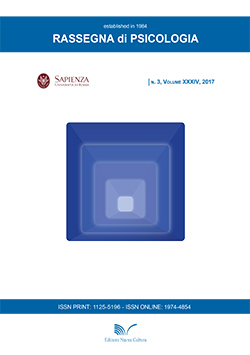Interpersonal forgiveness: a concept analysis. Effectiveness, risks and benefits for psychological wellbeing of forgiveness therapy
DOI:
https://doi.org/10.13133/1974-4854/16678Keywords:
interpersonal forgiveness, benefits of forgiveness, forgiveness therapy, psychopathology, effectiveness of forgiveness therapyAbstract
The scientific study of forgiveness dates back to the ’80s of the last century. Ther e is now a large bulk of correlational, longitudinal and experimental data on forgiveness. A series of cross-sectional studies show a high negative correlation between forgiveness and various dimensions of psychological suffering: individuals who are more forgiving are also less depressed and anxious. Moreover, several experimental studies demonstrate that modulating and increasing forgiving disposition and behaviours, as in Forgiveness Therapy, not only determines a significant decrease in in psychopathological suffering, such as anxiety, anger, and depression, but it also causes an increase in several psychological variables of wellbeing, such as trust, hope, self-efficacy, and joy. In the present article, a concept analysis of forgiveness is presented; its function and the related variables are examined, such as revenge and avoidance. Finally, the effectiveness, along with the benefits and risks of Forgiveness Therapy are explored.Downloads
Published
2017-12-04
Issue
Section
Articles
License
Copyright (c) 2017 Barbara Barcaccia

This work is licensed under a Creative Commons Attribution 4.0 International License.

